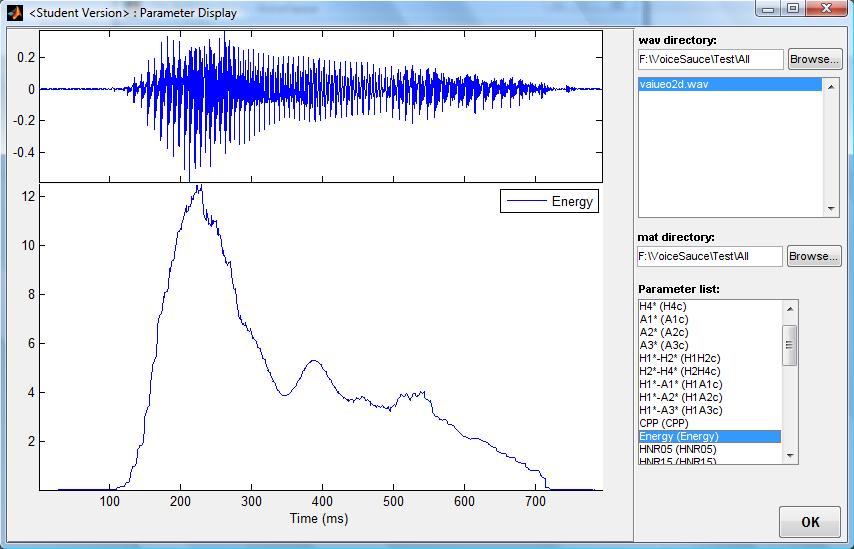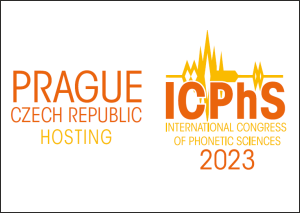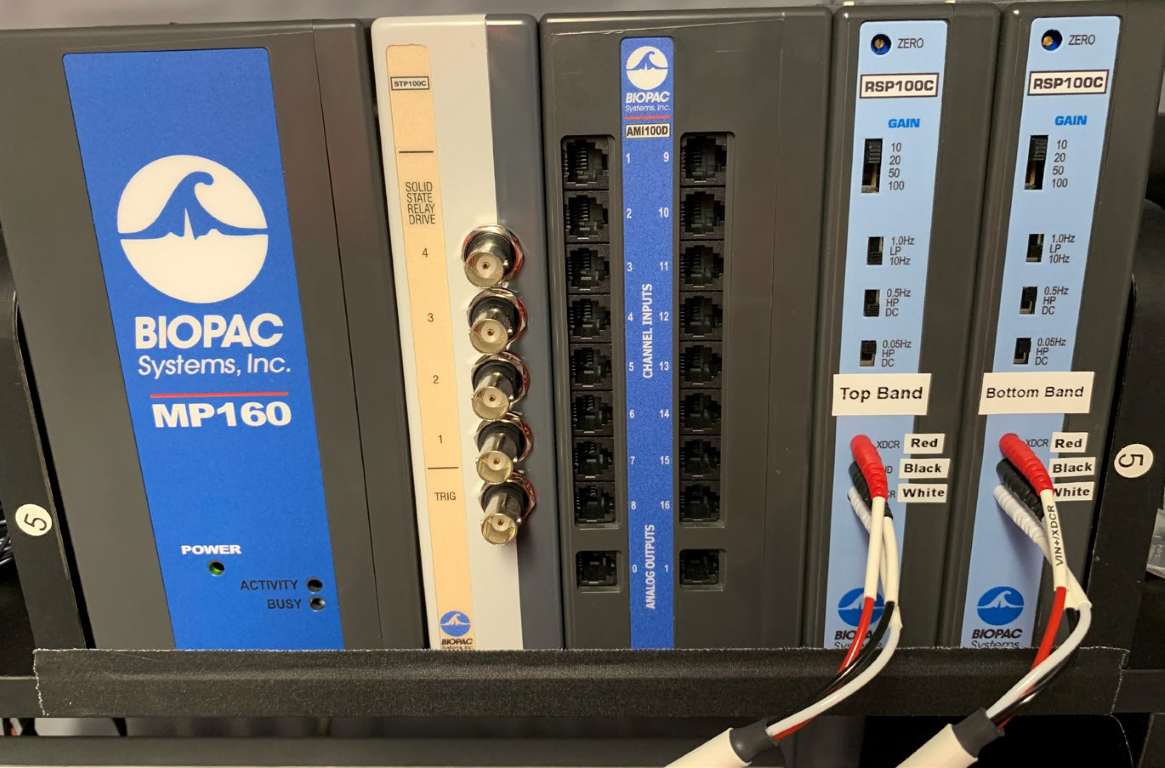About
The Cornell Phonetics Lab is a group of students and faculty who are curious about speech. We study patterns in speech — in both movement and sound. We do a variety research — experiments, fieldwork, and corpus studies. We test theories and build models of the mechanisms that create patterns. Learn more about our Research. See below for information on our events and our facilities.

Upcoming Events

11th November 2022 12:20 PM
Phonetics Lab Meeting
Visiting professor Dr. Josef Fruehwald - this week's CLC Linguistics Colloquium Talk speaker - will give an informal talk on "mismatch between prior impressionistic vowel transcriptions and the output of automated formant tracking".
Location: B11, Morrill Hall
16th November 2022 12:20 PM
PhonDAWG - Phonetics Lab Data Analysis Working Group
We'll look at some strength-of-excitation time series that Nielson obtained from the VoiceSauce MATLAB application.
VoiceSauce provides automated voice measurements over time from audio recordings.
Inputs are standard wave (*.wav) files and the measures currently computed are:
- F0
- Formants F1-F4
- H1(*)
- H2(*)
- H4(*)
- A1(*)
- A2(*)
- A3(*)
- 2K(*)
- 5K
- H1(*)-H2(*)
- H2(*)-H4(*)
- H1(*)-A1(*)
- H1(*)-A2(*)
- H1(*)-A3(*)
- H4(*)-2K(*)
- 2K(*)-5K
- Energy
- Cepstral Peak Prominence
- Harmonic to Noise Ratios
- Subharmonic to Harmonic Ratio
- Strength of Excitation
where (*) indicates that the harmonic/spectral amplitudes are reported with and without corrects for formant frequencies and bandwidths. More parameters to be added soon.
Location: B11, Morrill Hall
18th November 2022 12:20 PM
Phonetics Lab Meeting
Sam and Abby will provide tips for International Congress of Phonetic Sciences 2023 abstracts and papers.
Location: B11, Morrill Hall
28th November 2022 06:00 PM
ASL Literature Series: What My Life is Like, a performance with Cassie Simmons in American Sign Language
The Department of Linguistics proudly presents Cassie Simmons, storyteller and comedienne. Narrations - both humorous and serious - of Cassie’s personal experiences as an African American Deaf woman raised in Detroit form the basis of this entertaining show. The performance is enhanced by classic coming of age tales in the slapstick comedy tradition that were posted on YouTube by OICmovies including Revenge of the Lips, Shh (or Walking Noises), and Preacher Shock.
Cassie is a graduate of the Detroit Day School for the Deaf and the Michigan School for the Deaf. From 2009 to 2015, she appeared on OICmovies, a platform for American Sign Language students and interpreters to learn and practice sign language through narratives told by Deaf storytellers. Since leaving OICmovies, she has been a traveling storyteller, which she enjoys.
In 2015, Sorensen, which hosts a Deaf Culture video series on Facebook, invited Cassie to perform in New York City. In 2016, she performed for Epic Jam Spotlight in Seattle, Washington, and at Central Piedmont Community College in Charlotte, NC.
In 2017, Cassie was interviewed by students at Madonna University in Michigan about stories from her life. She made a video for ASLDEAFINED, a Michigan-based online ASL learning platform. and was invited to join a panel discussion at Oakland Community College in Michigan. Cassie was Master of Ceremonies and a performer at Reel Def Entertainment and performed at an event hosted by Detroit Black Deaf Advocates.
In 2018, Cassie performed at a conference of the Northern California Registry of Interpreters for the Deaf and gave a presentation for Michigan Registry of Interpreters for the Deaf. In addition, she was a presenter for an ASL Immersion program in Grasslake, Michigan.
In 2019, Cassie became a member of the Association for the Advancement of Deaf/Hard-of-Hearing (AADHH) in Detroit, Michigan. She presented workshops for Envision, an agency that provides support to ASL students. Cassie is also a member of All Means All, an organization promoting the work of disabled artists in Michigan.
Cassie tutors ASL students and has given workshops specializing in facial expressions for ASL students.
Location: Klarman Hall, G78, 232 East Avenue, Ithaca, NY 14853
Facilities
The Cornell Phonetics Laboratory (CPL) provides an integrated environment for the experimental study of speech and language, including its production, perception, and acquisition.
Located in Morrill Hall, the laboratory consists of six adjacent rooms and covers about 1,600 square feet. Its facilities include a variety of hardware and software for analyzing and editing speech, for running experiments, for synthesizing speech, and for developing and testing phonetic, phonological, and psycholinguistic models.
Web-Based Phonetics and Phonology Experiments with LabVanced
The Phonetics Lab licenses the LabVanced software for designing and conducting web-based experiments.
Labvanced has particular value for phonetics and phonology experiments because of its:
- *Flexible audio/video recording capabilities and online eye-tracking.
- *Presentation of any kind of stimuli, including audio and video
- *Highly accurate response time measurement
- *Researchers can interactively build experiments with LabVanced's graphical task builder, without having to write any code.
Students and Faculty are currently using LabVanced to design web experiments involving eye-tracking, audio recording, and perception studies.
Subjects are recruited via several online systems:
- * Prolific and Amazon Mechanical Turk - subjects for web-based experiments.
- * Sona Systems - Cornell subjects for for LabVanced experiments conducted in the Phonetics Lab's Sound Booth

Computing Resources
The Phonetics Lab maintains two Linux servers that are located in the Rhodes Hall server farm:
- Lingual - This Ubuntu Linux web server hosts the Phonetics Lab Drupal websites, along with a number of event and faculty/grad student HTML/CSS websites.
- Uvular - This Ubuntu Linux dual-processor, 24-core, two GPU server is the computational workhorse for the Phonetics lab, and is primarily used for deep-learning projects.
In addition to the Phonetics Lab servers, students can request access to additional computing resources of the Computational Linguistics lab:
- *Badjak - a Linux GPU-based compute server with eight NVIDIA GeForce RTX 2080Ti GPUs
- *Compute server #2 - a Linux GPU-based compute server with eight NVIDIA A5000 GPUs
- *Oelek - a Linux NFS storage server that supports Badjak.
These servers, in turn, are nodes in the G2 Computing Cluster, which currently consists of 195 servers (82 CPU-only servers and 113 GPU servers) consisting of ~7400 CPU cores and 698 GPUs.
The G2 Cluster uses the SLURM Workload Manager for submitting batch jobs that can run on any available server or GPU on any cluster node.
Articulate Instruments - Micro Speech Research Ultrasound System
We use this Articulate Instruments Micro Speech Research Ultrasound System to investigate how fine-grained variation in speech articulation connects to phonological structure.
The ultrasound system is portable and non-invasive, making it ideal for collecting articulatory data in the field.

BIOPAC MP-160 System
The Sound Booth Laboratory has a BIOPAC MP-160 system for physiological data collection. This system supports two BIOPAC Respiratory Effort Transducers and their associated interface modules.

Language Corpora
- The Cornell Linguistics Department has more than 915 language corpora from the Linguistic Data Consortium (LDC), consisting of high-quality text, audio, and video corpora in more than 60 languages. In addition, we receive three to four new language corpora per month under an LDC license maintained by the Cornell Library.
- This Linguistic Department web page lists all our holdings, as well as our licensed non-LDC corpora.
- These and other corpora are available to Cornell students, staff, faculty, post-docs, and visiting scholars for research in the broad area of "natural language processing", which of course includes all ongoing Phonetics Lab research activities.
- This Confluence wiki page - only available to Cornell faculty & students - outlines the corpora access procedures for faculty supervised research.

Speech Aerodynamics
Studies of the aerodynamics of speech production are conducted with our Glottal Enterprises oral and nasal airflow and pressure transducers.

Electroglottography
We use a Glottal Enterprises EG-2 electroglottograph for noninvasive measurement of vocal fold vibration.

Real-time vocal tract MRI
Our lab is part of the Cornell Speech Imaging Group (SIG), a cross-disciplinary team of researchers using real-time magnetic resonance imaging to study the dynamics of speech articulation.

Articulatory movement tracking
We use the Northern Digital Inc. Wave motion-capture system to study speech articulatory patterns and motor control.
Sound Booth
Our isolated sound recording booth serves a range of purposes--from basic recording to perceptual, psycholinguistic, and ultrasonic experimentation.
We also have the necessary software and audio interfaces to perform low latency real-time auditory feedback experiments via MATLAB and Audapter.

